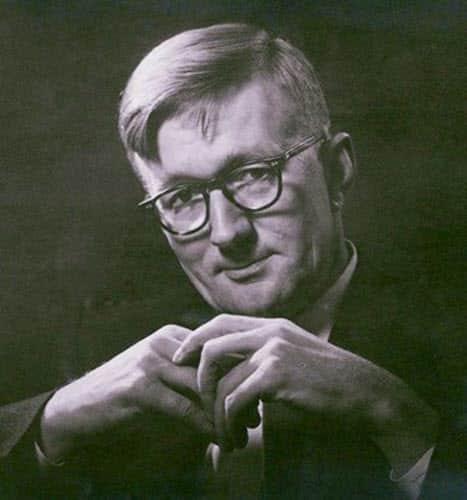Polykarp Kusch: Nobel Prize-Winning Physicist and Pioneer in Electron Magnetic Moment

Polykarp Kusch (26 January 1911 – 20 March 1993) was a German American physicist. He was awarded the Nobel Prize in Physics in 1955.
Life and Career
He was born on 26 January 1911, in Germany. He received his early education in Germany before he moved to the United States to pursue his higher education. He earned his bachelor’s degree from Case Western Reserve University in Cleveland, Ohio, in 1931. He then went on to earn his Master’s degree in physics from the University of Michigan in 1933.
Kusch continued his studies at the University of Illinois at Urbana-Champaign, where he worked under the supervision of Professor John Bardeen, who later won two Nobel Prizes in Physics. He obtained his Ph.D. in physics from the University of Illinois in 1936, with a thesis on the thermal conductivity of metals.
During his studies, he worked on a variety of experimental projects, including measurements of the electrical conductivity of metals and the temperature dependence of ferromagnetic materials. These early experiments helped to develop his skills in experimental physics, which he would later use to make his groundbreaking measurement of the electron’s magnetic moment.
He then worked as a research assistant at Columbia University, where he conducted his Nobel Prize-winning experiments on the electron’s magnetic moment. After serving in World War II, Kusch returned to Columbia University, where he became a professor in 1949 and remained until his retirement in 1982. In addition to his work on the electron’s magnetic moment, Kusch also made significant contributions to the study of the hyperfine structure of atomic spectra, the properties of positrons, and the application of microwave techniques to molecular spectroscopy.
He was a member of the National Academy of Sciences and a fellow of the American Physical Society. He died on 20 March 1993, in Dallas, Texas, USA.
Award and Legacy
He is best known for his contributions to the measurement of the magnetic moment of the electron, which helped to confirm the validity of quantum electrodynamics (QED) and earned him the Nobel Prize in Physics in 1955, which he shared with Willis Lamb.
Observer Voice is the one stop site for National, International news, Sports, Editor’s Choice, Art/culture contents, Quotes and much more. We also cover historical contents. Historical contents includes World History, Indian History, and what happened today. The website also covers Entertainment across the India and World.

